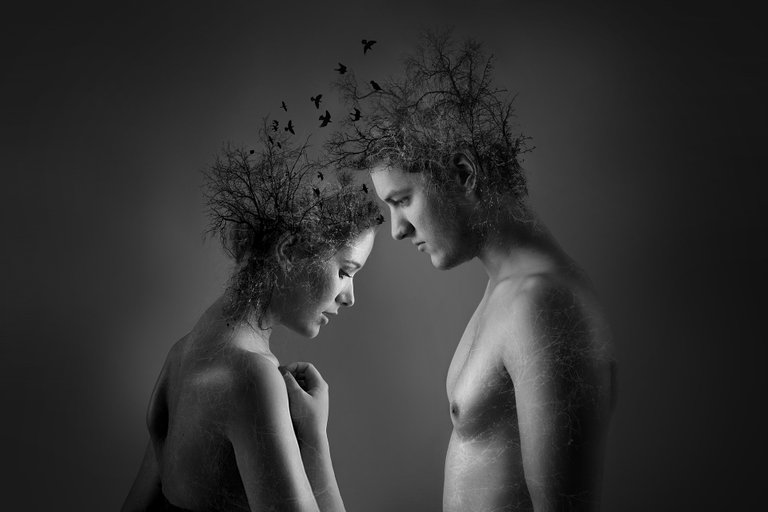
"WE FEEL that it's all right," explained Ruth. "We love each other; and after all we are going to get married in 18 months."
"We'd get married now if we had the money," added Philip.
Ruth and Philip, who had been engaged for one year, were talking to their clergyman. Attractive, earnest and very much in love they were challenging the conventional attitudes towards sexual intercourse before marriage. They asked, “If a man and woman really love each other, why don’t they have the right to enjoy their relationship to the fullest?”
Clergymen often have to answer questions like this one. I have listened to all kinds of people talk about sex, love and marriage. Most young people, I find, approach marriage with a faith. “Love can do anything,” they say. Yet they are confused about the function of sex in their lives― and well they might be, for many adults appear to be equally confused.
Some parents, teachers and clergymen avoid the responsibility of talking to them about sex, frankly and helpfully. It is no wonder that so many mistake sexual attraction for love.

Even babies have erotic feelings; children feel sexual attraction and as they grow older, undergo physiological and anatomical changes that awaken their sexual curiosity. All this is nature’s preparation for sexual life, for love and for marriage.
But we often fail to help children because we ignore the fact and meaning of their sex development and experience during the many years before they are ready for marriage.

The power of sex is due to the sexual division in almost all of creation. Male and female were not created to exist separately. Woman was made to complete man; and man was made to complete woman― anatomically, biologically, emotionally, mentally and spiritually. The power of sex needs springs from the longings of the incomplete person for completion. A divided creation consequently suffers, longing for union and fulfillment, as discovered by Ruth and Philip. The union sought is more than sexual. It is a longing for a personal union of which the sexual is but part and not the whole.
Sex without marriage has meaning; but its meaning, without the discipline that marriage can provide, is insecure and apt not to last. This is the point at which Ruth and Philip needed help. They were rightly sure that their relationship called for sexual expression, but they had not seen that their sex relationship required the continuity of marriage if its meaning were to be preserved and grow.

When human love seeks to achieve its own fulfillment, there are hope and determination on the part of the lovers. The desire to express “oneness” in the sex act is the attempt on the part of each to break out of separation and to achieve union.
Many lovers have experienced the feeling of “new creation,” “purification,” “completion.” One poet and theologian speaks of “the mystery of a sudden merging and union into a single indivisible being of flesh and spirit, of heaven and earth, of human and divine love.”
This interplay between the flesh and the spirit is important in all our living. The body is a means of a communication ―the hand clasp of a friend, the caress between mother and child, the kiss of lovers and ultimately, the deepest and most complete relationship between man and woman. This is a physical act, to be sure; but if it is not more than a physical act, it is not love. Sexual intercourse without love does not satisfy the participants but is usually followed instead by feelings of uncleanness, incompleteness and guilt.
Love is as important as oxygen. Yet all of us are doomed to experience a lack of love. First, our capacity to love is limited. Second we are too selfish ever to love another as much as he needs to be loved. We always want more love than we receive.
“Why can’t we love perfectly those whom we love?” is a question I often hear. The difficulty is that all of us need love most when we are most unlovable. The inability of one partner to love brings out the same in the other partner, which plunges the couple from the occasional heights of union to the depths of separation and despair. No matter how fulfilled our moments of union are, there is always the unexpressed love we receive or bestow. Thus it is the truest love story tells of both ecstasy and tragedy.
Human love, including the sexual expression of it, needs the power of divine love. This is love that has power to save, that is able to love the unlovable; the love that can enable us love another more than ourselves.
Every expression of genuine love on our part is evidence of God’s presence; and every act of real love conveys His presence. This is the meaning of that profound statement in the statement in the first epistle of St. John: “God is love; and he that dwells in love dwells in God and God in him.”
If a man and woman have this faith in love, they will find more power to serve and sacrifice for each other, to forgive, to share and sympathize, to understand each other.

Image Sources:pixabay.com&pexels.com